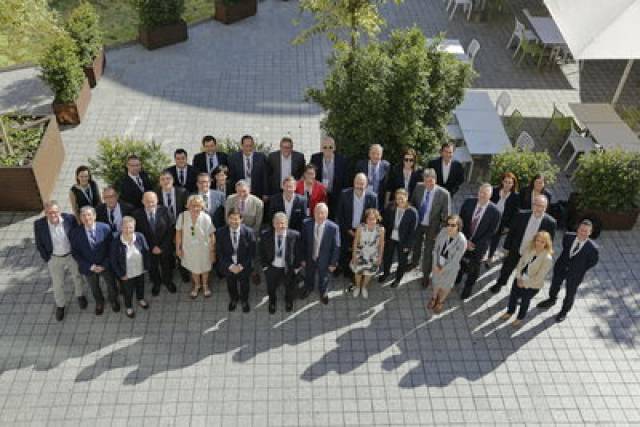#IrishPorts - Since its establishment, EcoPorts has for the first time reached the number of 32 ports certified with the environmental performance standard of the network (PERS).
Among the Port Environmental Review System (PER) certified ports, Afloat has identified two Irish ports: Dublin Port Company and Shannon Foynes Port Company.
Set up in 1997, EcoPorts operates under the European Sea Ports Organisation (ESPO) and is the main bottom-up initiative of the European ports to address the environmental challenges the sector faces.
Being PERS certified requires amongst others that the port increases transparency by making its environmental report publicly available. It also implies that the port is effectively monitoring the environmental challenges and is implementing an improved environmental management. PERS facilitates ports to comply with legislation and meet customer expectations. Additionally, ports’ environmental performance is increasingly taken into account ("factored-in") in calculations of the premium by major insurance companies; standards such as PERS are recognized as components of a sustainable approach.
“For many ports, PERS certification is the cherry on the cake, rewarding years of day-to-day engagement towards improving environmental management. We know that many other ports are meeting the requirements and are eligible for PERS certification. We hope that they will apply for the certificate. It must be seen as a quality mark for environmental sustainability. Both consumers and shippers are increasingly paying attention to a sustainable supply chain. These certificates can enhance the transparency and help them making the right choices”, says Secretary General of ESPO, Isabelle Ryckbost.
“The steady increase of the ports certified with the PERS standard, is remarkable and indicates the readiness of ports to address the environmental challenges, be transparent in communicating their environmental policy, build an even closer relationship with port cities’ communities and enhance their market reputation. We encourage all ports to join EcoPorts and obtain the PERS standard” says the EcoPorts coordinator, Sotiris Raptis.
One third of the 93 EcoPorts members have now acquired PERS, which is the only port specific environmental management standard. Compliance with the PERS standard is independently assessed by Lloyd’s Register and the certificate has a validity of 2 years. PERS is revised after the 2-year period to make sure that the port continues to meet the requirements.
The EcoPorts tools are available to ports and terminals outside Europe through the ECO Sustainable Logistic Chain Foundation (ECOSLC).































































